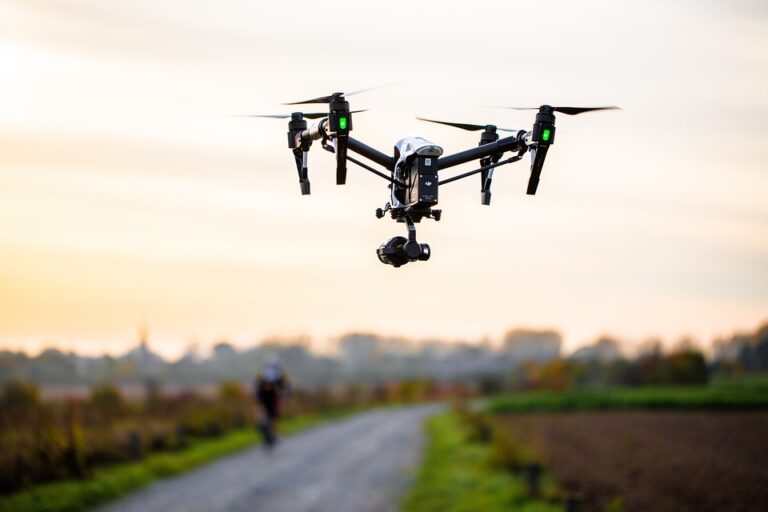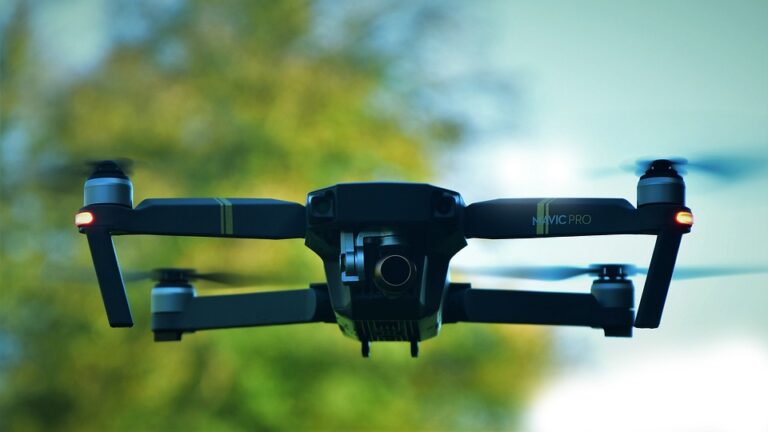The Rise of Autonomous Drones: How Artificial Intelligence is Transforming the Industry
In recent years, the use of drones has skyrocketed across various industries, ranging from agriculture and construction to entertainment and delivery services. These aerial vehicles have revolutionized the way tasks are performed, making them more efficient, cost-effective, and safe. One of the driving forces behind this transformation is the integration of artificial intelligence (AI) into drone technology. AI has allowed drones to become more autonomous, enabling them to perform tasks with minimal human intervention. In this article, we will explore the rise of autonomous drones and how AI is transforming the industry.
Autonomous drones refer to unmanned aerial vehicles that can operate without human intervention. They are equipped with sensors, cameras, and AI algorithms that enable them to navigate, analyze data, and make decisions on their own. This level of autonomy has opened up a wide range of possibilities for drones, making them more versatile and capable of performing complex tasks.
One of the key areas where autonomous drones are making a significant impact is in agriculture. Farmers are using these drones to monitor crop health, analyze soil conditions, and even spray pesticides and fertilizers. With the help of AI, these drones can collect data through sensors and cameras, and use machine learning algorithms to analyze the information in real-time. This allows farmers to identify crop diseases, nutrient deficiencies, and other issues early on, leading to more targeted interventions and increased yields.
Autonomous drones have also transformed the construction industry. They are utilized for surveying and mapping construction sites, monitoring progress, and inspecting infrastructure. With AI capabilities, these drones can generate accurate 3D models of sites, identify potential safety hazards, and detect structural defects. This not only saves time and reduces costs but also improves worker safety by minimizing the need for human intervention in risky environments.
The entertainment industry has also embraced the use of autonomous drones. They are used for capturing breathtaking aerial shots in movies, commercials, and sporting events. These drones are equipped with AI algorithms that allow them to fly smoothly and precisely, capturing high-quality footage from unique perspectives. This has not only enhanced the visual experience for audiences but also reduced the reliance on expensive helicopter or crane shots.
Delivery services have been revolutionized by autonomous drones as well. Companies like Amazon and Google are testing the use of drones for delivering packages to customers’ doorsteps. AI algorithms enable these drones to navigate through complex urban environments, avoid obstacles, and make safe and efficient deliveries. This has the potential to significantly reduce delivery times and costs, especially for remote or hard-to-reach areas.
The rise of autonomous drones has brought about several benefits, but it also comes with its own set of challenges. One major concern is the potential misuse of this technology. There have been instances of drones being used for illegal activities, such as spying or smuggling contraband. To address this, regulatory bodies are working on implementing stricter guidelines and regulations to ensure responsible and ethical use of autonomous drones.
Another challenge is ensuring the safety and reliability of autonomous drones. While AI algorithms have greatly improved their ability to navigate and make decisions, there is always a risk of system failures or malfunctions. Companies are investing heavily in developing robust fail-safe mechanisms and conducting thorough testing to minimize the occurrence of accidents or incidents.
The integration of AI into drone technology also raises questions about job displacement. As drones become more autonomous, there is a concern that they may replace human workers in certain industries. However, proponents argue that the rise of autonomous drones will create new job opportunities, particularly in areas such as drone maintenance, data analysis, and AI development.
In conclusion, the rise of autonomous drones powered by AI is transforming various industries. From agriculture and construction to entertainment and delivery services, these drones are making tasks more efficient, cost-effective, and safe. With the ability to collect and analyze data in real-time, autonomous drones are revolutionizing traditional practices and opening up new possibilities. However, it is important to address the challenges associated with the use of this technology, such as regulation, safety, and job displacement, to ensure responsible and ethical deployment.




